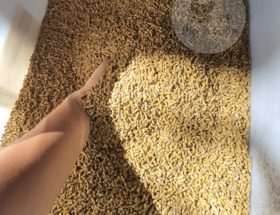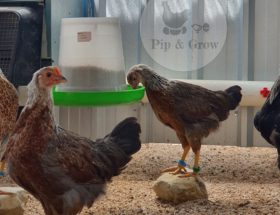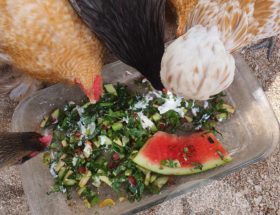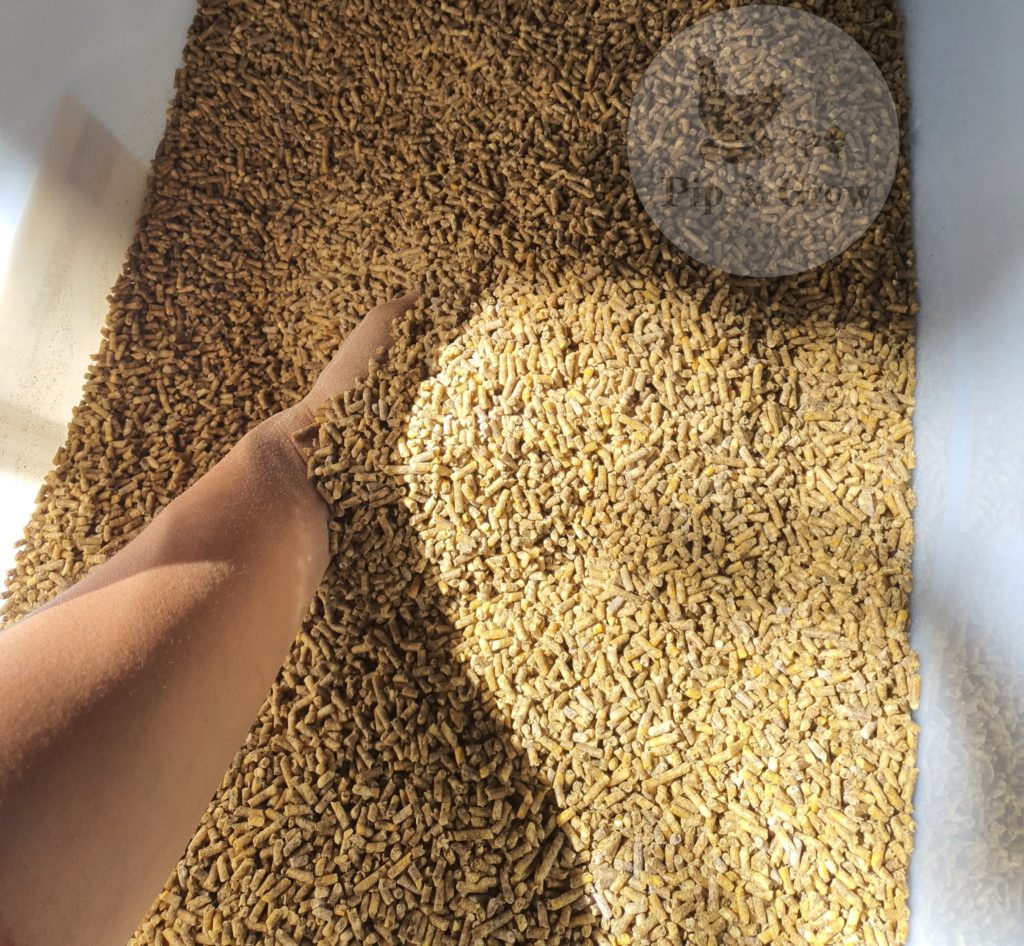
Selecting the appropriate chicken feed for each stage of a chicken’s life is vital for their overall health, growth, and productivity. Every life stage, including chicks, pullets, and laying hens, comes with distinct nutritional needs that must be met to ensure optimal development and performance. Failure to provide the right feed can result in various issues, including developmental abnormalities, diminished egg quality, reduced productivity, and increased susceptibility to diseases. It’s crucial to strike the right balance in nutrition, as both excess and deficiency can lead to problems.
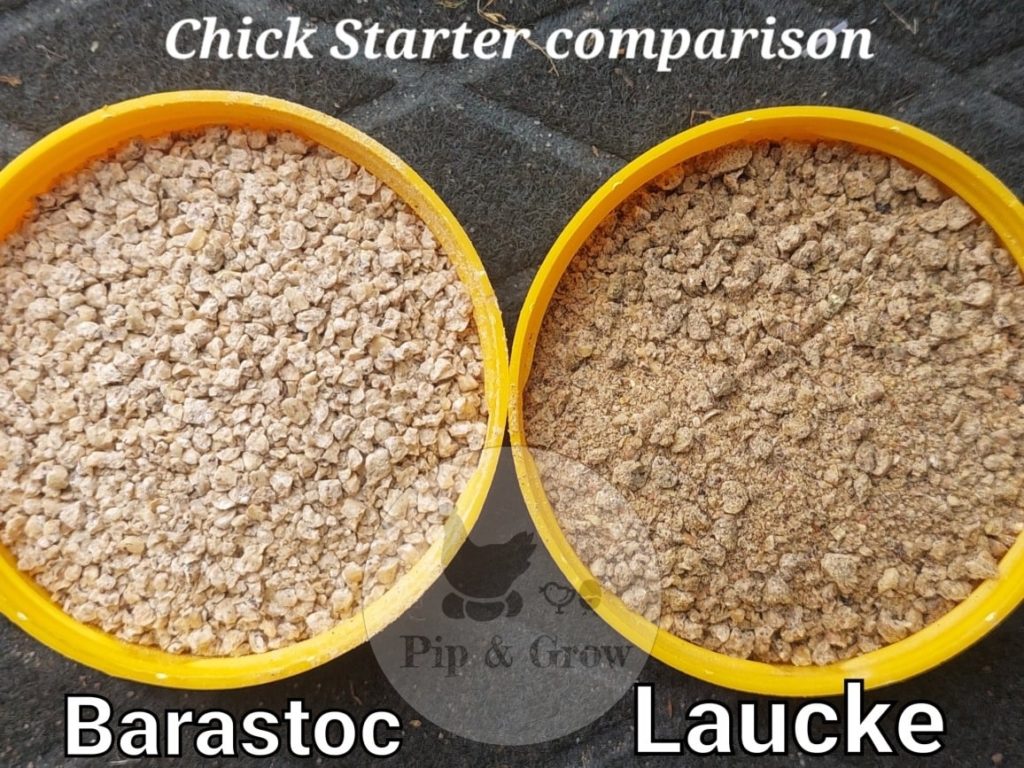
Chick Starter or Crumble : From Hatching to 8 weeks
For newly hatched chicks, it’s essential to provide them with a starter feed rich in protein (typically around 20%) to support their rapid growth and feather development. This feed should also include vital vitamins and minerals like vitamin E and selenium, crucial for boosting their immune system and overall vitality.
Medicated chick starter feed contains an anticoccidial agent designed to prevent coccidiosis, a common intestinal disease caused by the coccidia parasite, specifically Eimeria species. Given the vulnerability of young chicks to infections and their developing immune systems, this disease can pose significant challenges. Medicated chick starter feed gradually builds up chicks’ immunity to coccidia, thereby reducing the risk of illness and mortality. It’s important to note that this feed acts as a preventive measure rather than a treatment for active coccidiosis infections. Chicks showing signs of coccidiosis should receive immediate treatment with suitable medications e.g., Amprolium, Cocciprol, Baycox.
Additionally, medicated chick starter feed isn’t suitable for chicks that have been vaccinated for coccidiosis, as vaccination provides immunity, negating the need for medication in their feed. Furthermore, it’s not appropriate for adult chickens or laying hens, as the presence of the anticoccidial agent in the feed necessitates egg withholding.
While we recommend medicated chick starter feed for raising chicks not vaccinated against coccidiosis, the decision should consider various factors such as the chick’s environment, coccidiosis risk factors, and personal preferences as a poultry keeper.
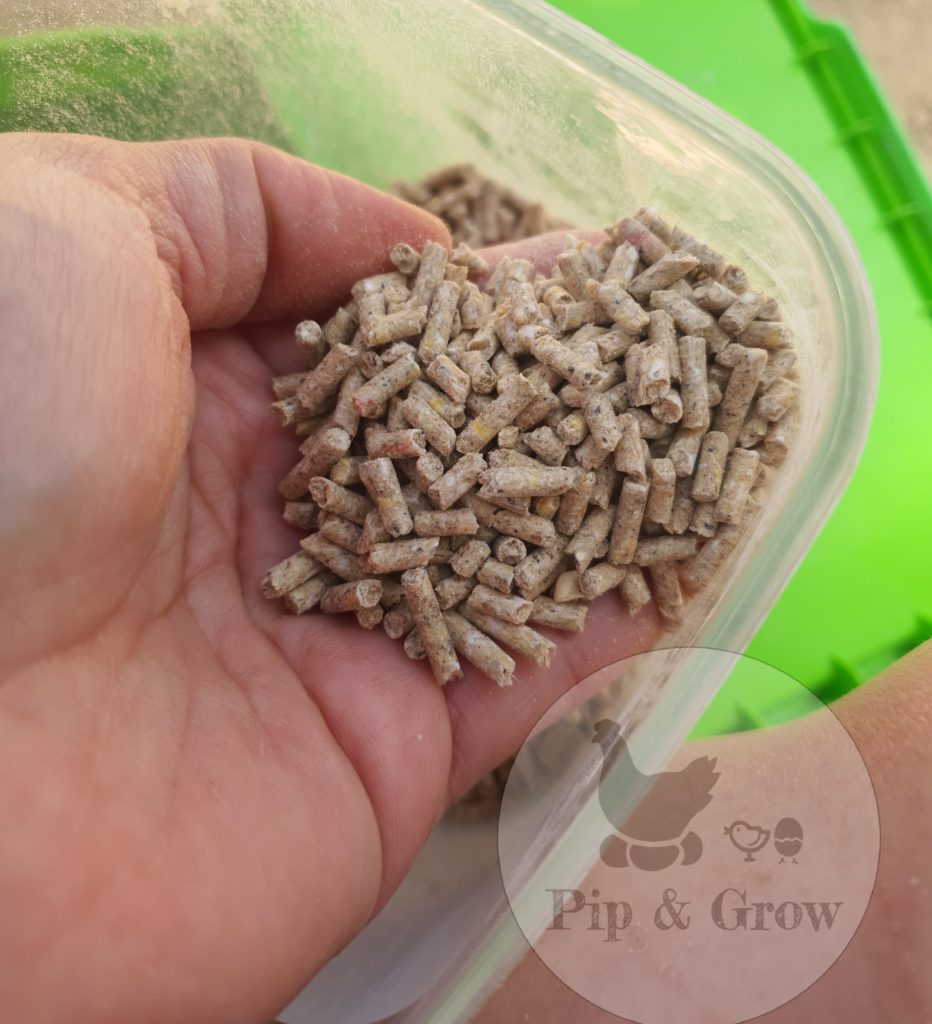
Pullet Grower : From 8 weeks to 16 weeks
As chicks transition into young pullets, they still require a well-balanced diet, albeit with a slightly lower protein content compared to starter feed (around 16%). This feed is essential for supporting healthy bone development and preparing the pullets for egg laying.
Read more – reason why not to provide too high protein feed in growing age
Similar to medicated chick starter feed, medicated pullet grower feed contains an anticoccidial agent. Young birds under 12 weeks old are particularly susceptible to coccidiosis as their immune systems are still developing, especially as they transition from the brooder to outdoor environments. Providing them with medicated pullet grower feed helps strengthen their immunity to coccidia, reducing the risk of illness and mortality. As they mature, the likelihood of a coccidiosis outbreak decreases. Whether to use medicated feed or not remains a matter of personal preference.
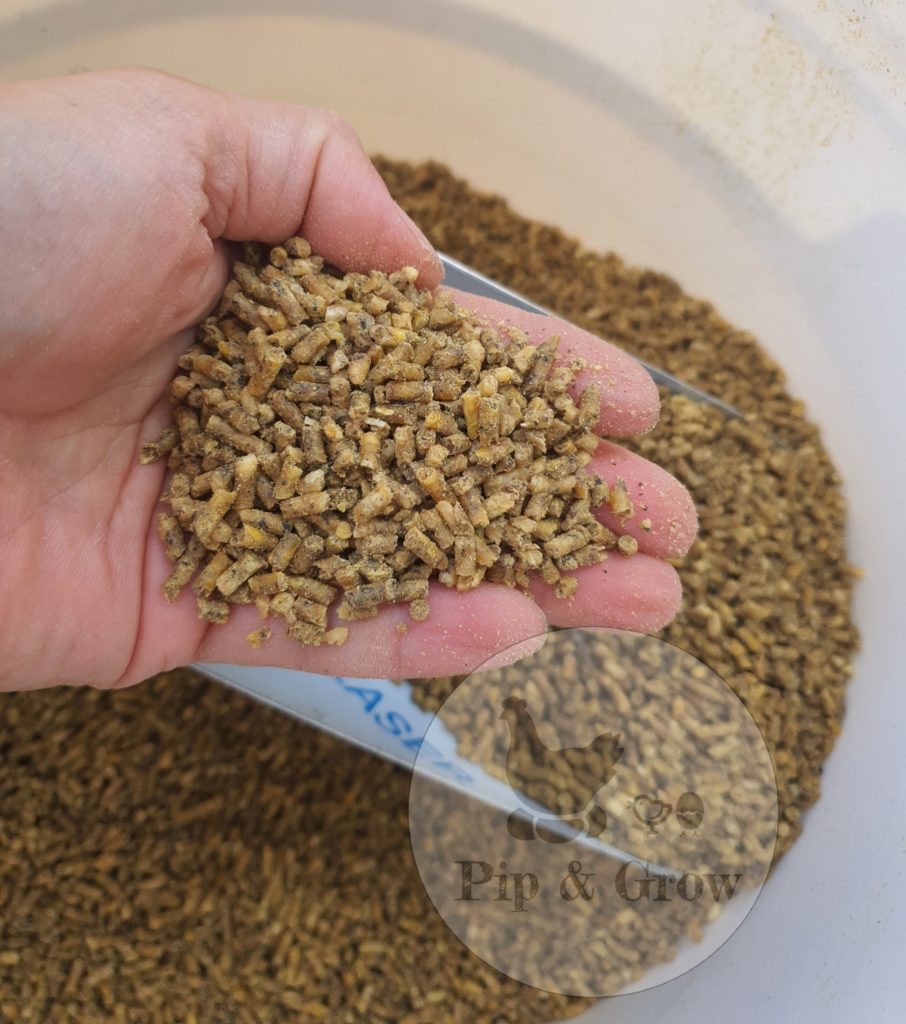
Mature age : Over 18 weeks
Laying hens require a layer feed specifically formulated to support egg production. These feeds typically have lower protein content (around 17%) but higher levels of calcium to promote strong eggshells. Additionally, they may contain added nutrients such as omega-3 fatty acids for enhanced egg quality.
Commercial layers like ISA Brown and Hyline are bred specifically for high egg production, so their feed requirements are tailored to support this productivity. Layer feed typically contains higher levels of calcium to support strong eggshell formation.
For heritage breed chickens, a “Breeder” feed can be suitable for them year-round at any age. These specialized feeds are formulated to meet the nutritional needs of breeding chickens, including those of heritage breeds, throughout various stages of their reproductive cycle.
Laucke Showbird MP Breeders is a popular choice among breeders and it is what we use for our birds. However, there are many other high-quality breeder feeds available from different manufacturers and local feed suppliers. When selecting a breeder feed, it’s essential to consider factors such as the nutritional content, ingredient quality, and any specific requirements of your flock.
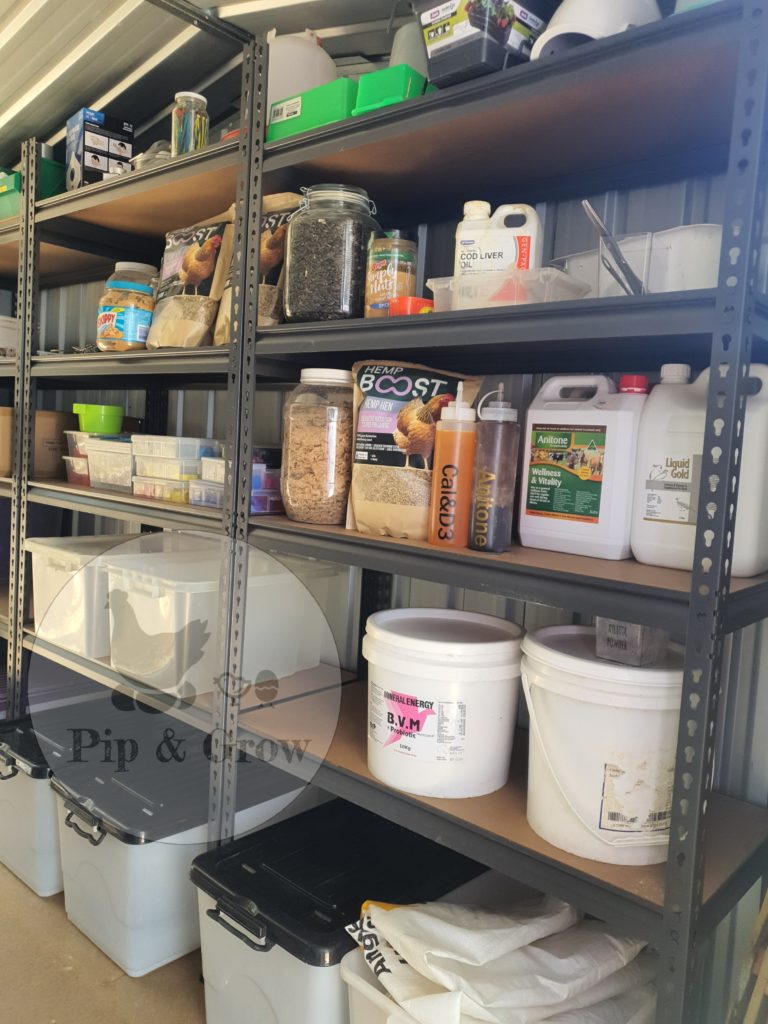
Ultimately, the key is to choose a breeder feed that provides the necessary protein, vitamins, minerals, and other nutrients to support optimal breeding performance, egg fertility, and chick viability. Regular monitoring of the birds’ health, egg production, and reproductive success can help ensure that they are receiving adequate nutrition from the chosen breeder feed. Adjust their feed as needed based on factors such as age, reproductive status, and environmental conditions.
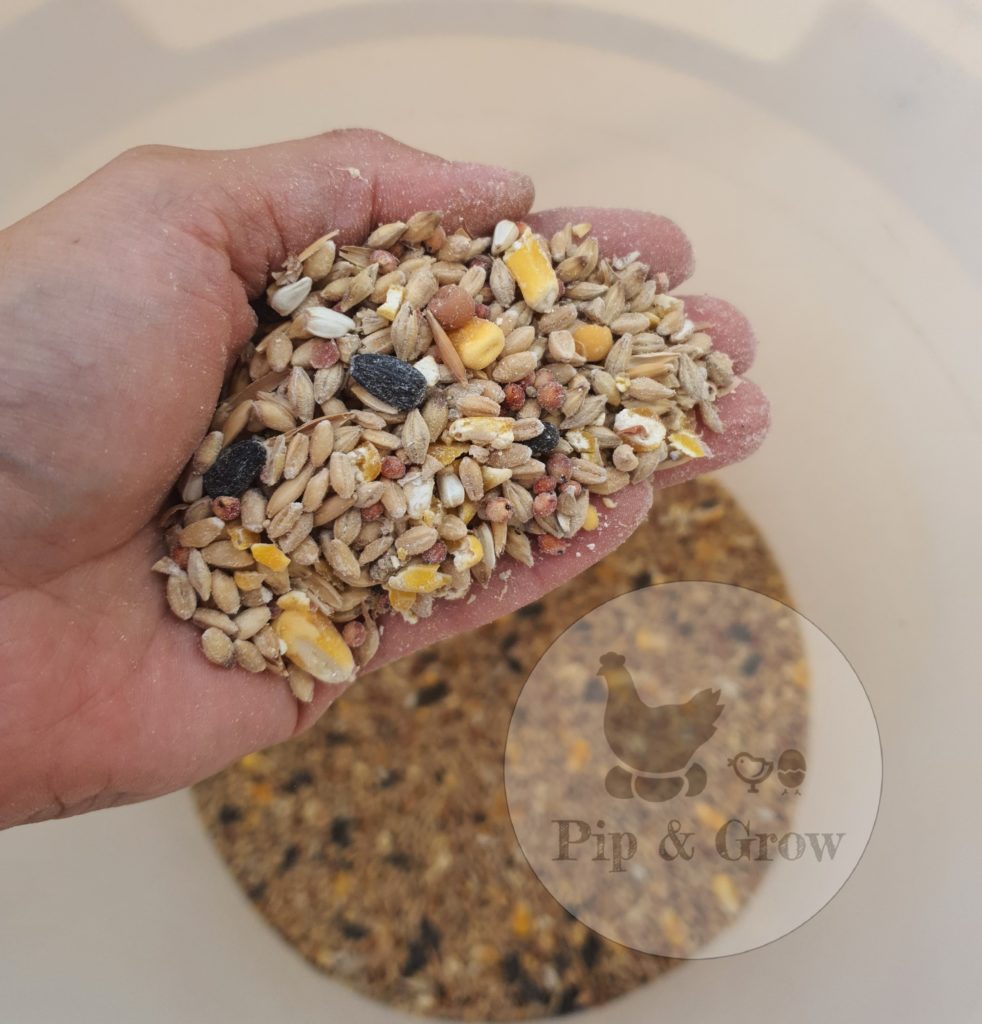
Chickens are like kids.
If we offer a plate filled with vegetables and sweets to children, what will they choose first?
Chickens, like many animals, have preferences for certain foods based on taste and texture. When presented with a mix of seeds and grains, they may selectively eat their favorite grains and ignore the others. Selective eating can result in wasted feed, as chickens scatter or discard the grains they don’t want. This not only increases feed costs but also creates a mess in the coop or feeding area, which can also attract rodents.
In terms of nutrition, while seeds and grains provide essential nutrients like carbohydrates, fats, and proteins, they lack other vital elements crucial for optimal chicken health, such as vitamins, minerals, and amino acids. Without a well-balanced diet, chickens may experience growth issues, reduced egg production, and overall health problems. Formulated poultry feeds are specifically crafted to offer chickens the perfect blend of nutrients, ensuring they thrive and perform at their best.
Although seeds and grains can be part of a chicken’s diet, relying solely on them is not advisable. Instead, consider offering them as treats—a small handful a day during visits to the pen—or experiment with fermenting or sprouting grains to enhance their nutritional value. This approach helps diversify the chickens’ diet and ensures they receive the essential nutrients they need to stay healthy and productive.
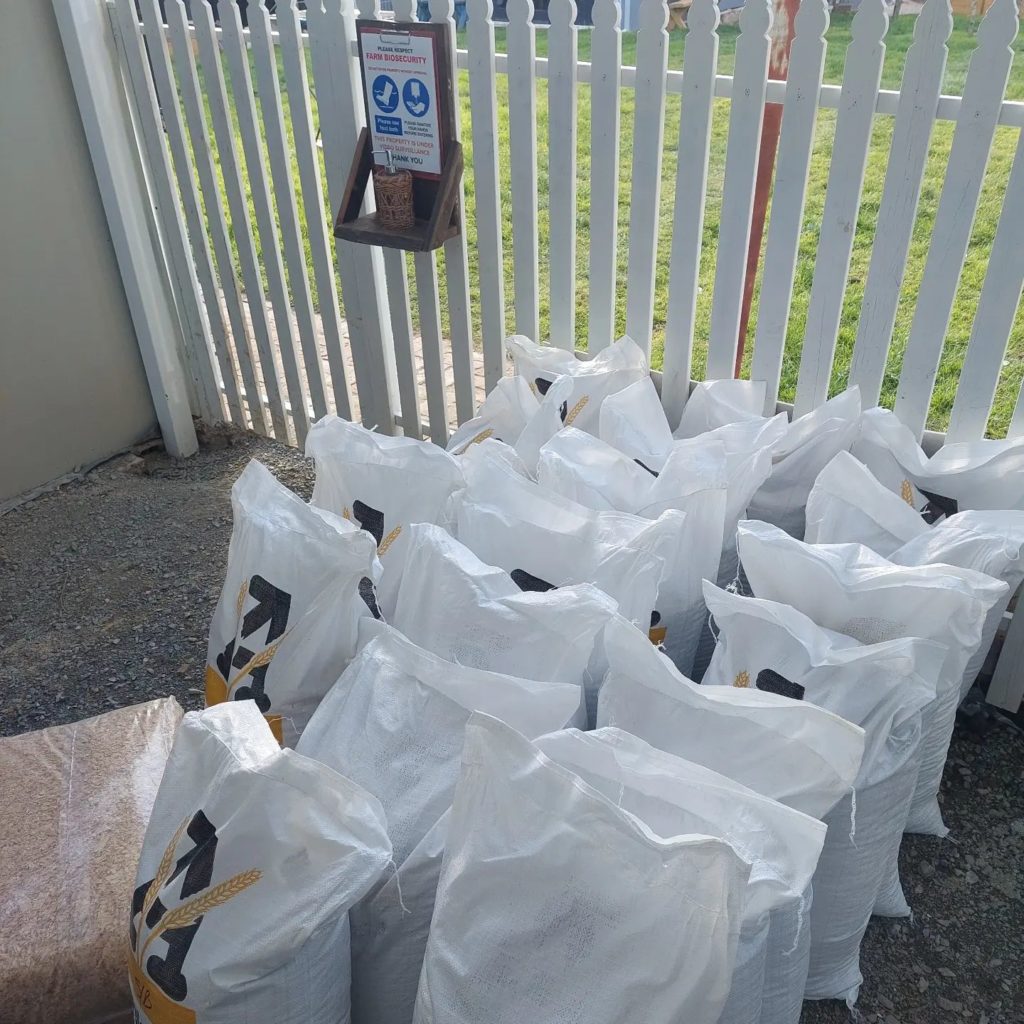
Is homemade chicken feed an option?
Although commercially made chicken feed offers convenience and balanced nutrition, crafting your own feed at home is indeed feasible. Homemade chicken feed grants you greater control over ingredients and can be a cost-effective choice, particularly if you have access to locally sourced or homegrown grains and supplements.
However, producing homemade chicken feed demands careful planning, sourcing high-quality ingredients, and consistently monitoring your flock’s health and productivity. It’s crucial to diligently research and follow recipes to ensure your homemade feed meets your chickens’ nutritional needs. Consulting with a poultry nutritionist or veterinarian can also assist in tailoring a balanced homemade feed recipe specifically for your flock.
While homemade feed may be a rewarding and budget-friendly alternative for some chicken keepers, others may opt for the reliability and convenience of commercially produced feed. Ultimately, the decision between homemade and commercial feed hinges on individual preferences, available resources, and the goals of the chicken keeper.
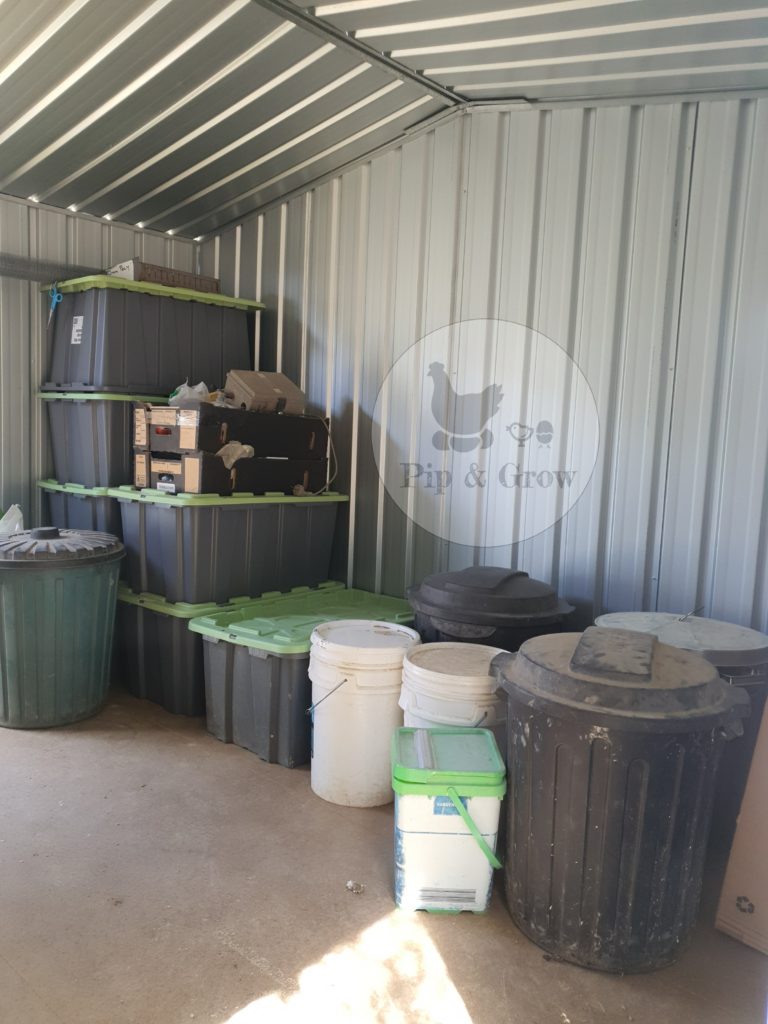
Chicken Feed Storage
- Dry and Cool Location: Store feed in a dry, cool, well ventilated area to prevent heat and moisture buildup, which can lead to mold growth and spoilage. Avoid areas prone to humidity or temperature fluctuations.
- Rodent-Proof Containers: Use tightly sealed containers to deter rodents and pests from accessing the feed. Metal or heavy-duty plastic bins with secure lids are ideal for keeping feed safe from pests.
- First In, First Out (FIFO) Rotation: Practice FIFO rotation to ensure older feed is used first, minimizing the risk of feed spoilage and ensuring freshness.
- Regular Inspection: Check feed storage containers regularly for signs of damage, pests, or moisture buildup. Address any issues promptly to maintain feed quality.
Always ensure that chickens have access to fresh, clean water at all times.
Related Posts
Feeder Selection & Scattering feed problem
Waterers – Pros & Cons
Sprouting Grains
